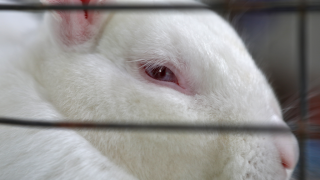
Help us achieve a future free of animal testing
A report by Cruelty Free International has found that public summaries of research projects involving animal testing in Britain often fail to adequately describe the harm that animals will experience.
As part of applying for a government licence to conduct tests on animals, animal users must write a “non-technical summary” (NTS) – a summary of the research project that is intended to be accessible to and understandable by members of the public.
Cruelty Free International scientists analysed the NTS of 200 research projects published in 2020, specifically looking at the section of the NTS in which predicted harms to the animals were meant to be described.
The analysis found that information was lacking in many cases, preventing a full understanding of what animals undergoing the testing would experience. In particular, the NTS frequently failed to fully describe what procedures the animals would be subjected to, how often procedures would take place, how long procedures would last and the harm they would cause.
Comparing NTS published in 2020 to those from 2013 showed that there has been an improvement in reporting, but there is still a long way to go before full transparency is achieved.
The report also compared NTS published in Germany, France, Spain, Italy and Belgium to the British NTS and found that the latter scored worse by almost every measure of quality. Since leaving the EU, GB is falling behind in terms of the accessibility of the NTS too – the EU now operates a user-friendly searchable database of NTS while, in contrast, the GB publishes its NTS in large pdf documents.
Dr Sam Saunders, Cruelty Free International’s UK Science Programme Manager, said: “It’s bad enough that animal testing still takes place in this day and age, but the lack of transparency around how animals are used makes it even worse. We hope this report encourages animal users and those responsible for approving licences to test on animals think more carefully about the harms they are inflicting on animals.”
Sign up for campaign alerts below to make sure you don't miss out on important news about what we are doing for animals in laboratories.
